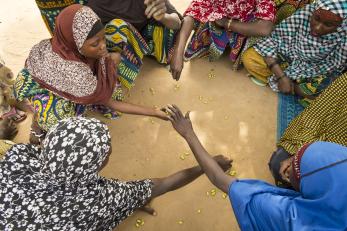Social Capital and Good Governance

Social capital — the norms, relationships and networks that enable people to act collectively — is increasingly linked to positive development and well-being outcomes. Communities with higher stocks of social capital are more likely to experience better health outcomes, fewer violent conflicts and less crime, higher educational achievement and increased economic growth. Evidence demonstrates that, “[t]hose communities endowed with a diverse stock of social networks and civic associations are in a stronger position to confront poverty and vulnerability, resolve disputes, and take advantage of new opportunities.” Numerous scholars have suggested that social capital enables citizens to act together more effectively to pursue shared objectives and make collective demands of governance institutions, and that societies with robust associational life and diverse networks are more likely to be engaged civically and participate in governance than those without such networks.
While research and experience have illustrated correlations between social capital and well-being, the aid sector lacks an understanding of the processes and pathways through which social capital contributes to good governance and promotes the collective good — learning that could fundamentally improve our programmatic approaches.
This research brief attempts to fill this gap by providing an overview of existing literature on social capital and governance and discussing practical applications for aid agencies seeking to improve governance outcomes at the local level. We begin by defining social capital, summarizing its benefits and drawbacks and how it is generated and maintained. We then provide a framework outlining how social capital contributes to good governance and discuss how Mercy Corps’ good governance approach aligns with this framework. Finally, we provide guidance for future programming with strategies for strengthening social capital as a means for promoting good governance.


